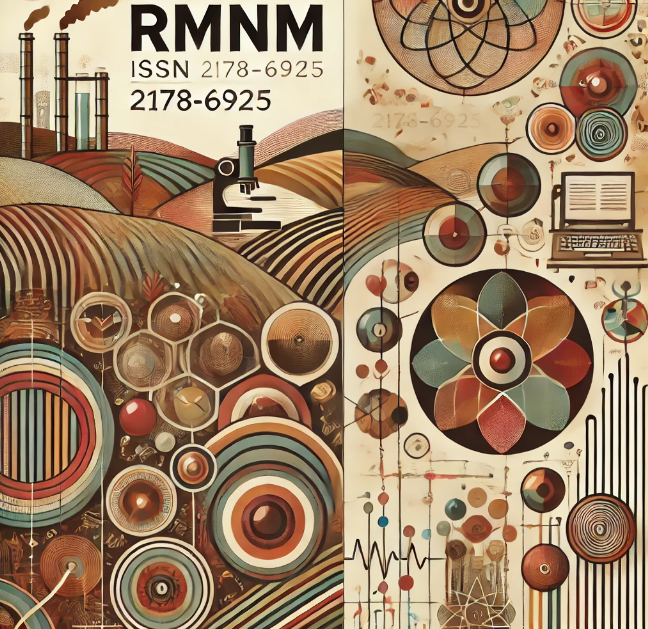PARÂMETROS DOS DIREITOS DO CONSUMIDOR DIGITAL
DOI:
https://doi.org/10.61164/rmnm.v5i1.2411Keywords:
Eletrônico, Segurança de transações, Consumidor digital.Abstract
The advancement of e-commerce, along with advances in payment methods and the increased use of cryptocurrencies, drives the adoption of digital technologies in both product selection and transaction. However, this shift presents challenges for consumers, especially those who are not yet familiar with online commerce. E-commerce encompasses several modalities, such as B2A, B2B, B2C and C2A, and plays an essential role in the Brazilian economy. In 2020, the country recorded a significant increase in the number of online orders, with revenue of R$126.3 billion and 20 million new customers. In this context, this study aims to understand consumers' perception and evaluation of their experiences with digital technology in e-commerce, in addition to analyzing the application of consumer protection legislation in this scenario. Specific objectives include exploring the origin of the Consumer Protection Code, defining the concept of defect, evaluating liability systems, analyzing defenses and impediments to such liability, investigating cases in which liability may be attributed to the end supplier for defective products, examining Brazilian consumer behavior in online shopping, describe the innovations brought by Technical Note nº 281/2012 for consumer protection and explore the right to withdraw from purchases. The justification for this study lies in the need to update consumer protection legislation to deal with the challenges and transformations brought by electronic commerce. Protecting consumer rights is crucial in a context where vulnerability can be exploited in digital transactions. Therefore, this work seeks to contribute to the understanding and improvement of consumer protection laws in electronic commerce in Brazil.
References
AGHAUNOR, LAVIN; FOTOH, Xavieria. Factors affecting ecommerce adoption in Nigerian banks. 2006.
ANDRADE, Rogério de. Guia Prático de E-Commerce. 1. ed. São Paulo: Angra, 2001.
BIGDATA CORP. Pesquisa O PErfil do E-Commerce brasileiro. (2020). Disponível em: https://newsroom.br.paypal-corp.com/download/2020.08.+Perfil+E-Commerce+2020.pdf. Acesso em: 27/09/2022.
BRASIL. Decreto nº 7.962, de 15 de março de 2013. Dispõe sobre a contratação no comércio eletrônico e dá outras providências. Diário Oficial da União, Brasília, DF, 18 mar. 2013.
BRASIL. Lei nº 8.078, de 11 de setembro de 1990. Dispõe sobre a proteção do consumidor e dá outras providências. Diário Oficial da União, Brasília, DF, 12 set. 1990.
BRASIL. Ministério da Justiça. Secretaria Nacional do Consumidor. Nota Técnica nº 281/2012. Brasília, DF, 2012.
DE AZEVEDO, Diego Ghiringhelli. Estudo transdisciplinar das relações de consumo. Paco Editorial, 2019.
FREIRE, Daniel et al. Um tribunal internacional para a internet. Almedina, 2019.
HAWKINS, Del I.; MOTHERSBAUGH, David L. Comportamento do consumidor: construindo a estratégia de marketing. Elsevier Brasil, 2018.
MENDONÇA, Herbert Garcia de. E-commerce. Revista Inovação, Projetos e Tecnologias, v. 4, n. 2, p. 240-251, 2016.
NARLOCH, Leandro. Guia politicamente incorreto da economia brasileira. Leya, 2015.
NUNES, Rizzatto. Curso de direito do consumidor. São Paulo: Editora Saraiva, 2018.
Pesquisa Psafe. Quase 70% dos consumidores têm medo de comprar on-line; Economia IG. https://economia.ig.com.br/2021-08-06/fraude-compra-online.html.
SILVA, Bruna Alves da; AZEVEDO, Sandson Barbosa. O Comportamento do Consumidor do E-commerce: Fatores que influenciam o Processo Decisório de Compra. In: XI Congresso Nacional de Excelência em Gestão. 2015.
SMITH, Rob; SPEAKER, Mark; THOMPSON, Mark. O Mais Completo Guia Sobre ECommerce 1. ed. São Paulo: Futura, 2000.
Downloads
Published
How to Cite
Issue
Section
License
Copyright (c) 2024 Revista Multidisciplinar do Nordeste Mineiro

This work is licensed under a Creative Commons Attribution-NonCommercial-ShareAlike 4.0 International License.




